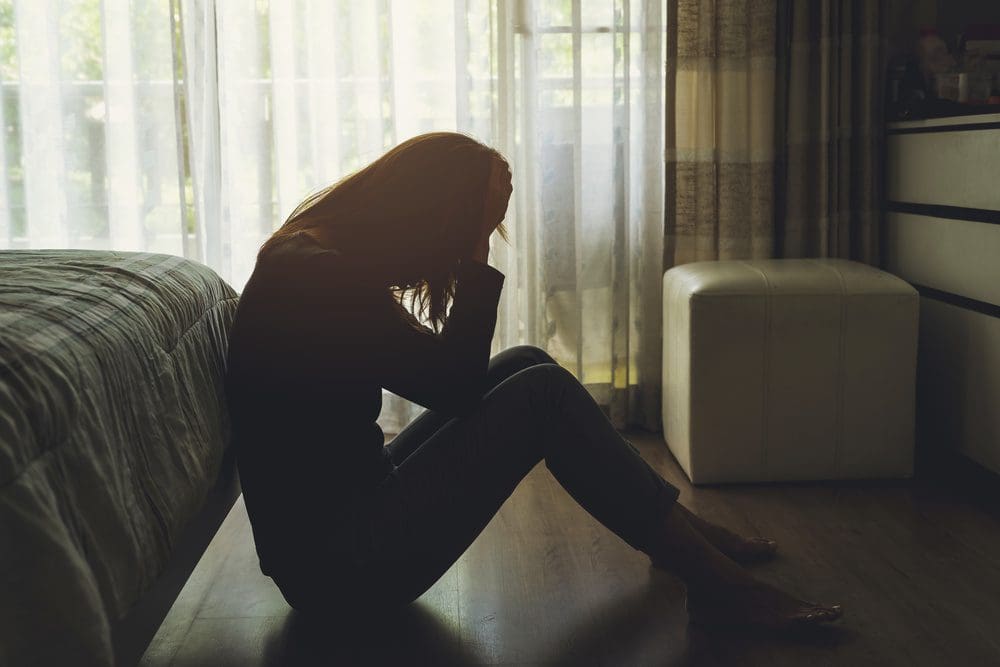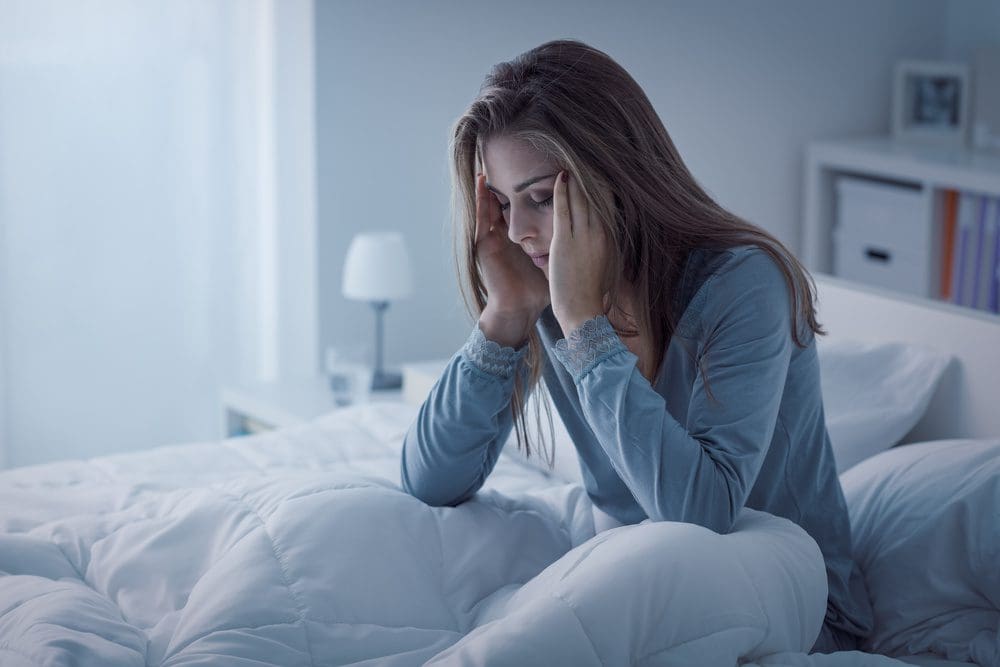Full Disclosure: Clicking on these links could mean a tiny commission for me, at no extra cost to you.
Anxiety and depression are often mistaken for one another. Both are mental health conditions that can prevent people from doing what they can typically do. And while both conditions have similarities, they are inherently different. Knowing these differences is essential for determining the appropriate treatment a patient needs.
Advertisement
💚 Ready to Start Healing?
Therapy can change lives — and BetterHelp makes it easy. Get matched with one of 20,000+ licensed therapists and begin your journey from the comfort of home. Services start at just $65/week — no waiting rooms, no commute.
The Importance of Understanding Anxiety and Depression
If you suspect that you may be suffering from anxiety or depression, it’s important to understanding the differences between the two. While going to a specialist is the best thing to do, learning the differences will help you get a basic understanding of these conditions and their treatments, such as talk therapy and even EMDR therapy. For that purpose, here’s an article to guide you. So read on!
Anxiety
Anxiety disorders often involve irrational sense of worry and fear often characterizes anxiety. In many cases, people experiencing anxiety also experience restlessness, irritation, and difficulty handling stressors caused by fear or worry. Usually, there’s an underlying emotional trigger that initially starts the mental health concerns and if untreated, anxiety can become excessive and turn into a serious mood disorder.
Some types of this disorder are the following:
- Generalized Anxiety Disorder (GAD)
GAD is often identified as a severe feeling of worry or fear about a wide range of issues and situations. This may include the feeling that something unpleasant will happen to a person or his family or group. Another distinct symptom is the feeling of distress whenever the patient encounters an emotional trigger.
- Social Anxiety Disorder
In many cases, social anxiety often starts during childhood or teenage years. An unpleasant experience, such as rejection by a peer group or parental troubles, during this period could lead to a persistent feeling of excessive worry about being among people. This may also include worrying about humiliation and fear of interacting with others.
- Panic Disorder
Panic disorder typically develops when a person experiences a traumatic event, like the death of a loved one, a life-threatening situation, or an assault. This anxiety disorder often shows physical symptoms, such as chest pain and shortness of breath.
Advertisement
⚡ Access Treatment Right Now
→ Online Therapy – Talk to a licensed therapist today through BetterHelp. Affordable, private, and convenient therapy starting at $65/week. Take the Free Assessment to get matched now.
→ Digital Psychiatry – Connect with a provider in 12–48 hours via Hims/Hers. Explore FDA-approved medication options — no insurance required. Get Started Today.
Depression
In contrast to anxiety, depression can be referred to as an extremely emotional low point. Its symptoms may include a continuous feeling of sadness and a lack of interest and energy to do the once-loved activities. If this condition becomes severe, it may lead to self-hurt and even suicide.
In many cases, many factors cause or contribute to depression. These may include genetics, major life stress, substance misuse, and physical, emotional, and mental abuse. In some cases, a combination of these factors leads to various depressive states and types, which may include the following:
- Major Depression
Also known as major depressive disorder, this condition is typically diagnosed when a person shows a string of symptoms for more than a couple of weeks. One of the symptoms must be a lack of interest in activities or a persistently low mood.
People suffering from major depression show different symptoms. However, most display extreme sadness, suicidal tendencies, weight loss, anxious distress, and agitation.
- Persistent Depressive Disorder
This condition is typically longer than chronic major depression cases. Many people experiencing this mental condition show low self-esteem, hopelessness, and appetite change. Some of them also experience overfatigue and sleeping problems.
This condition typically happens during winter months. This condition is often attributed to the shorter daytime and the cold temperature during winter.
- Psychotic Depression
People with psychotic depression show symptoms of major depression and psychosis. In many cases, these symptoms include delusion, paranoia, and hallucination.
- Postpartum Depression
This is a unique type of depression experienced by some women after giving birth. Typically, this depression happens four weeks after childbirth. Its symptoms vary in every person, including melancholy and sleeping problems.
Types of Treatment for Anxiety and Depression
- Talk Therapy
Otherwise known as psychotherapy, talk therapy is believed to treat anxiety and depression. In many cases, talk therapy helps patients control or eliminate their symptoms. This therapy is often associated with other forms of treatment, such as medications.
🌿 Ready to Heal? Find Your Perfect Online Therapist Now
Anxiety is treatable — and BetterHelp makes support accessible and affordable. With 20,000+ licensed therapists and pricing starting at just $65/week, it's never been easier to get help. Take the free quiz and get matched with your ideal therapist today.
- Relaxation Techniques
These may include meditation and breathing exercises. The purpose of these activities is to lighten a person’s mood and ease his anxiety. These techniques are often undertaken in sessions for weeks or months.
- Eye Movement Desensitization And Reprocessing (EMDR) Therapy
This is a nontraditional form of treatment where the therapist uses the patient’s rapid and rhythmic eye movements. This treatment is believed to weaken the stress and ill effects of a patient’s traumatic experience. In many cases, this technique lasts for 90–120 minutes.
For effective healing and trauma resolution, explore the transformative power of EMDR therapy through the professional services offered by onelifecounsellingcoaching.com/services/emdr-therapy/.
- Cognitive Behavioral Therapy
This form of treatment is somehow synonymous with talk therapy, only that it provides a more specific approach to anxiety and depression. In dealing with anxiety, cognitive behavioral therapists help patients face the situations that cause their worries. In dealing with depression, the therapists bank on the positive experiences of the patient to balance his emotional distress.
- Medication
The medication available for people experiencing anxiety and depression depends on their individual symptoms. In most cases, doctors prescribe antidepressants to relieve these symptoms. Some of the common antidepressants patients take are the following:
- Selective Serotonin Reuptake Inhibitors (SSRIs)
Common SSRIs are fluoxetine, escitalopram, citalopram, and sertraline. These are believed to affect a person’s serotonin level—a chemical that affects a person’s mood. As a result, SSRIs increase people’s feelings of being pleasant. SSRIs take time to take effect, so a person’s conditions improve weeks after.
- Benzodiazepines
These medications affect a person’s physical symptoms more, such as sweating, muscle tension, and restlessness. These act fast and are, thus, appropriate to address real-time anxiety and emotional lows. However, they’re not suitable as long-term solutions. Apart from this, people taking these medications longer than they should tend to develop substance dependence.
Final Thoughts on Anxiety and Depression
Anxiety and depression are two of the most common types of mental health conditions. Fortunately, there are many forms of treatments that can address these issues. If you’re experiencing any symptoms related to anxiety and depression, the best thing to do is to consult a specialist and start learning about your condition so you can learn how to overcome it.
In addition, you may refer to the insights in this article to give you an idea about the symptoms and the possible forms of treatment that may work for you. You may also ask people who can openly share about their conditions, especially if they found a successful treatment.
At Anxiety Gone, we believe in healing together. We’ve partnered with trusted wellness organizations to bring you the most effective tools, insights, and support. Some links may earn us a commission — always at no extra cost to you.
Connect with our private self-care community for daily support, exclusive tips, and inspiration. Join us today Get matched with licensed therapists online through BetterHelp and begin your healing today. Start now Receive personalized, affordable mental health care + medication from home — no insurance required. Learn more Subscribe to our newsletter for a place to rest your mental health and find ways to support your journey. Sign up Tap your way to calm with scientifically backed stress relief. Our readers receive a 14-day free trial! Try EFT now Access 2,000+ guided practices to support your mental health wherever you are + exclusive discount when you upgrade Try it Experience calm and reset your nervous system with guided sessions and receive your first month free . Get started If you need immediate support, visit our directory to find help near you. See helplinesAdditional Resources
Join The Club
Talk Therapy
Hims/Hers
Mental Health, Right to your Inbox
Emotional Freedom Technique
Mindfulness App
Online Breathwork
Find a Helpline









